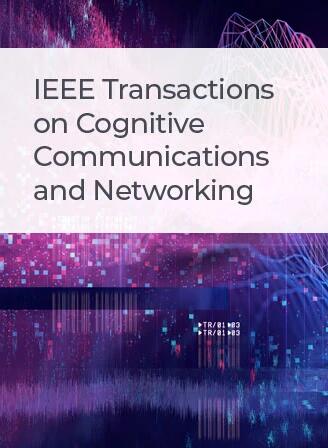Toward Intelligent and Adaptive Task Scheduling for 6G: An Intent-Driven Framework
IF 7.4
1区 计算机科学
Q1 TELECOMMUNICATIONS
IEEE Transactions on Cognitive Communications and Networking
Pub Date : 2024-04-19
DOI:10.1109/TCCN.2024.3391318
引用次数: 0
Abstract
A cloud network schedules diverse tasks to multi-access edge computing (MEC) or cloud platforms within dynamic industrial Internet of Things (IIoT). The scheduling is influenced by the diverse intents of different parties, including the time-sensitive nature of device-generated tasks and the energy efficiency of servers. The complexity of this problem under dynamic network conditions is underscored by its nature as a Markov state transition process, typically classified as NP-hard. We introduce an intent-driven intelligent task scheduling approach (IITSA), which models a partially observable Markov decision process (POMDP) and introduces a multi-agent proximal policy optimization (MAPPO) method. We introduce a dynamic adaptive mechanism to effectively address conflicts arising from the temporal requirements and energy limitations associated with various tasks on MEC servers. This mechanism enhances the reward function of MAPPO, for which we offer comprehensive mathematical analysis to validate its convergence performance. Simulation results showcase that our proposed IITSA effectively achieves a harmonious trade-off between time-sensitive demands and infrastructure energy efficiency while exhibiting high adaptability. Compared to state-of-the-art algorithms like MADDPG and QMIX, IITSA reduces energy consumption by 11.68% and 7.07%, and enhances on-time completion numbers for time-sensitive tasks by 18.33% and 12.17%, respectively.面向 6G 的智能自适应任务调度:一个意图驱动的框架
在动态工业物联网(IIoT)中,云网络将各种任务调度到多接入边缘计算(MEC)或云平台。调度受各方不同意图的影响,包括设备生成任务的时间敏感性和服务器的能效。在动态网络条件下,这一问题的复杂性因其马尔可夫状态转换过程的性质而凸显,通常被归类为 NP-hard。我们引入了一种意图驱动的智能任务调度方法(IITSA),该方法建立了一个部分可观测马尔可夫决策过程(POMDP)模型,并引入了一种多代理近似策略优化(MAPPO)方法。我们引入了一种动态自适应机制,以有效解决 MEC 服务器上与各种任务相关的时间要求和能源限制所产生的冲突。该机制增强了 MAPPO 的奖励功能,我们为此提供了全面的数学分析,以验证其收敛性能。仿真结果表明,我们提出的 IITSA 有效地实现了时间敏感需求与基础设施能效之间的和谐权衡,同时表现出很强的适应性。与 MADDPG 和 QMIX 等最先进的算法相比,IITSA 的能耗分别降低了 11.68% 和 7.07%,时间敏感任务的按时完成率分别提高了 18.33% 和 12.17%。
本文章由计算机程序翻译,如有差异,请以英文原文为准。
求助全文
约1分钟内获得全文
求助全文
来源期刊

IEEE Transactions on Cognitive Communications and Networking
Computer Science-Artificial Intelligence
CiteScore
15.50
自引率
7.00%
发文量
108
期刊介绍:
The IEEE Transactions on Cognitive Communications and Networking (TCCN) aims to publish high-quality manuscripts that push the boundaries of cognitive communications and networking research. Cognitive, in this context, refers to the application of perception, learning, reasoning, memory, and adaptive approaches in communication system design. The transactions welcome submissions that explore various aspects of cognitive communications and networks, focusing on innovative and holistic approaches to complex system design. Key topics covered include architecture, protocols, cross-layer design, and cognition cycle design for cognitive networks. Additionally, research on machine learning, artificial intelligence, end-to-end and distributed intelligence, software-defined networking, cognitive radios, spectrum sharing, and security and privacy issues in cognitive networks are of interest. The publication also encourages papers addressing novel services and applications enabled by these cognitive concepts.
 求助内容:
求助内容: 应助结果提醒方式:
应助结果提醒方式:


